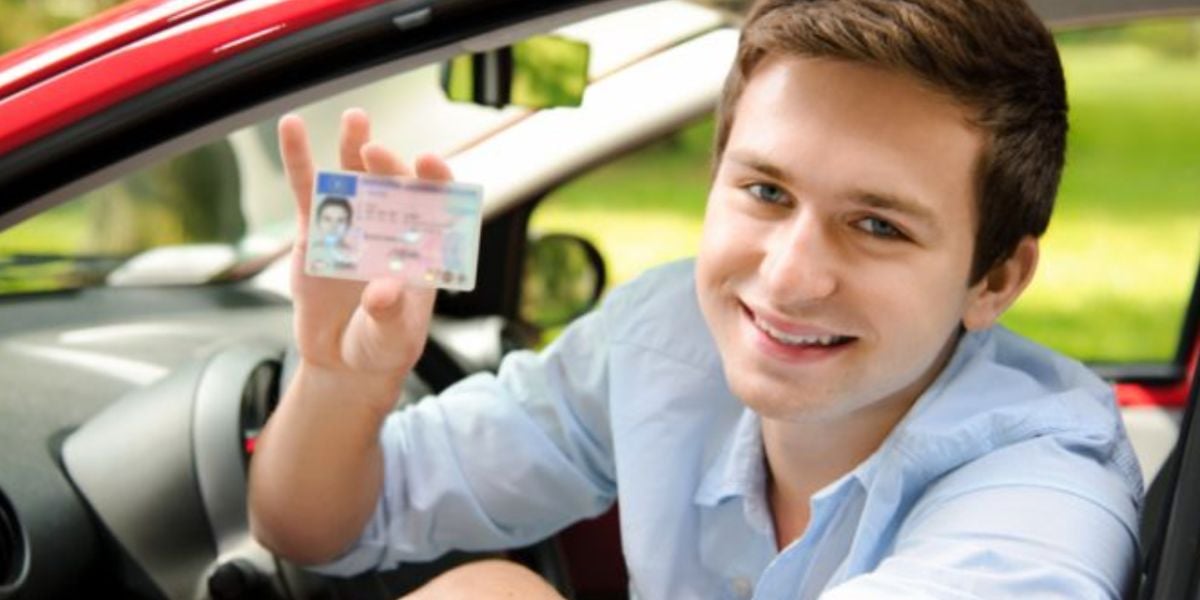
Germany is famous for its fast highways and latest technology cars, as some of the world's top car brands are manufactured in the country, such as Audi, Mercedes-Benz, BMW, Volkswagen, and Porsche. Driving is a big part of life in Germany, especially if you wish to enjoy nature and visit other cities on weekend road trips. Hence, having a driver's license in Germany may be one of your priorities upon moving to Germany, and so is understanding the unique rules when it comes to driving.
If you are a citizen of the EU–EEA, you can drive in Germany with your national driver's license. Citizens from other countries are allowed to do the same for up to 6 months after their arrival in Germany. Then, it is possible to get a six-month extension (if your stay in the country is no more than a year) or apply for an exchange of your original license for a national one. Many countries have reciprocity agreements with Germany, meaning that their driver's licenses are similar to the ones in Germany, making the conversion easy.
Driving as a non-EU–EEA national in Germany
If you're a national from outside the EU–EEA, you can drive in Germany with your national driving license or International Driving Permit for a period of up to 6 months, with a possible extension of 6 additional months if your total stay will not exceed one year. You may be required to provide an official translation of your driver's license plus a certification of permission to drive ("Zertifizierung der Fahrerlaubnis"). Check with your national embassy or consulate in Germany to find out more about the special requirements for driving in the country. After a year, and if your country has signed agreements with Germany on driver's license exchange, you must exchange your national driver's license for a German driver's license. The rules for exchanging vary from one country of origin to another. Nevertheless, the process is relatively easy for citizens of Canada, Australia, New Zealand, South Africa, and some American states which have an agreement of reciprocity.
If you come from a state that does not have a reciprocity agreement, you will have to take a German driving test. Nationals of countries such as India have to register for a driving school, buy all the study materials, and attend compulsory classes in theory and practical lessons. Additionally, there is an eye test and a first aid class to complete. It is possible to skip specific training on different types of roads and to take a practical exam directly. In any case, the procedure of obtaining a German driving license is time-consuming and costly and needs to be well-considered before starting. Nationals from countries such as Andorra, Bosnia and Herzegovina, French Polynesia, Guernsey, Isle of Man, Israel, Japan, Jersey, Monaco, Namibia, New Caledonia, South Korea, San Marino, Switzerland, and Singapore need to provide only an updated eye test certificate.
Attention:
Provisional driving licenses are not valid, and the driver must comply with the minimum required age of 18 years for driving a car in Germany.
Driver's license exchange in Germany
To exchange your national driver's license for a German driver's license (Führerschein), you must go to the local administrative department or the town hall's driving license office (Führerscheinstelle) and provide the following documents:
- Photocopies and the original of a valid ID or passport and possibly your visa and residence permit, together with a confirmation from the Office for Foreigners (Landeseinwohneramt) of the duration of residency in Germany (Aufenthaltserlaubnis);
- The original national driver's license plus a photocopy;
- Official translation of your national license into German may be required;
- Biometric passport-sized photo (following regulations);
- An eye test is sometimes performed;
- Fees are applicable for the exchange process, and it may take a few weeks to get your German driver's license.
Attention:
If you are a citizen from outside the EU–EEA and cannot exchange your national driver's license for a German driver's license, you will have to take driving tests (both practical and theoretical), which can only begin after a year in Germany.
Useful links:
Federal Ministry of Transport and Digital Infrastructure
Find your local driving license office (Führerscheinstelle)
Driving rules in Germany
Regarding driving rules, be aware that using a mobile phone is not allowed except when the car engine is off or with a hands-free kit, and all passengers are required to wear their seatbelts. Children under the age of 3 must travel on a child seat, and children under 12 must have child restraints. The speed limit is set at 50 km/h in built-up areas, while some sections are limited to 30 km/h. Many streets, especially in cities, are restricted to 30 km/h during quiet hours (10 pm–6 am), and there are often speed cameras in these areas, too. Outside built-up areas, the speed limit is set at 80 km/h or 100 km/h, depending on the roads. German highways are free. However, toll rates (Mautgebühr) apply to trucks depending on their exhaust emissions, the distance traveled, and infrastructure costs. It is important to keep in mind that German motorways are heavily used by drive-through lorries from other countries. Even though there are no general speed limits on the motorway, it is advised not to exceed 130 km/h. Most degraded sections are limited to 100 km/h or 120 km/h.
When traveling by car in Germany, make sure to always carry with you all the necessary documents at all times. The most important documents are:
- Your driving license;
- If you didn't rent it, a certificate to prove the ownership of your car;
- Your passport or residence card;
- Proof of insurance.
Given that safety is paramount in Germany, there are some indispensable items you will have to have in your car when you're on the road. Some of the most important things to remember are:
- Warning triangle;
- Reflective safety jackets;
- First aid kit;
- Beam deflectors;
- In winter, it is essential to know the “O to O” rule for snow tires: Oktober bis Ostern (October to Easter).
Important:
In Germany, it is compulsory to insure your vehicle. A technical inspection must be performed regularly.
We do our best to provide accurate and up to date information. However, if you have noticed any inaccuracies in this article, please let us know in the comments section below.








